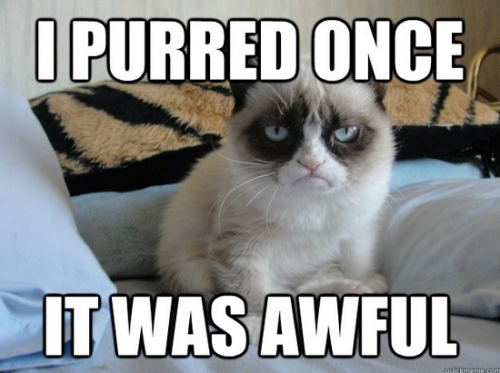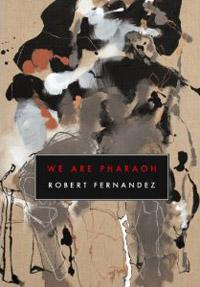I STILL DON’T “GET” POETRY READINGS

A few weeks ago, I gave poetry readings a hard time on HTMLGIANT. When I wrote the article, I was aware of its potential to generate conversation. However, I had no idea just how much conversation it would generate.
To everyone who participated in the conversation, thank you. I can’t say that I liked everything that everyone had to say (just as many of you didn’t like what I had to say), but that’s okay. Everyone’s allowed an opinion. In fact, as creatures of language, it’s impossible for us not to have opinions because language relies on difference in order to make meaning; or at least that’s what I think Derrida would say. It’s only sensible then that our opinions (not just yours and mine on this particular matter but everyone’s opinion on anything/everything) should often differ.
To get to why I’ve titled this article “I Still Don’t ‘Get’ Poetry Readings,” though, I’ll tell you it’s because I don’t. I don’t “get” poetry readings. I don’t “get” them not for a lack of trying. I don’t “get” them because I don’t understand what readings hope to achieve within the broader framework of culture. I’ve been to many poetry readings, some of which have moved me so deeply that I cried (Tomaž Šalamun) and some of which have failed to reach me (though also not for a lack of trying). Despite how very different poetry readings can be from one another, I’ve noticed that they all share the same quality of autonomy. It seems to me that the poetry reading desires to be a space that exists for itself and through itself. My complaint, however, isn’t with the poetry reading’s desire for autonomy but rather with the inaccessibility this desire creates.
In my last article, the solution I was pushing for was to make poetry readings more “accessible,” more transparent. Here, I’m pushing for the same idea. Accessibility is what defines the Electronic Age in which we live. Accessibility is about mass consumption, and mass consumption is about power.
In this essay, as well as in the last, I’m urging poetry readings to actualize their full potential: to realize their power.
I’ve read through all the responses to my first article on both HTMLGIANT and Facebook (no, I’m not friends with Hoa Nguyen, but her wall is public), and I strongly feel that my last essay was deeply misunderstood. To clarify the position of my last essay, I’ll respond to a few of the responses that point to its underpinnings.
I think the response that best contextualizes my first article and the meaning I intended it to summon forth is this one:
I DON’T “GET” POETRY READINGS
I’m a soon-to-be graduate of an M.F.A. program in creative writing. All I have left to do is teach a few classes, defend my thesis, and read a few books. Oh. And I’ve also been tasked to write a report on a poetry reading. This last point is why I’m writing to you now.
Let me backtrack for a moment though to tell you that before I was an M.F.A. student, I was an undergraduate working my way towards a B.A. in creative writing and a B.S. in advertising. Before that, I was a teenager that lived with my father, who was a professor, and my mother, who was an English major. My mother took her major very seriously, and as a result I began reading Poe, Melville, Plath, Tennyson, and other “canonical” writers at a very young age.
In short, I’m no stranger to poetry.
However, after going to the Hoa Nguyen reading at the University of Colorado at Boulder on February 21st, I realized that I don’t really “get” poetry. Or rather, I kind of “get” poetry, as much as it’s possible to be “gotten,” but I don’t “get” poetry readings.
After the reading, I confronted a friend about my dilemma: having to write a piece on something I don’t really understand. He recommended I read the VICE article by Glen Coco titled: “I Don’t ‘Get’ Art.” I ripped off the title, but what choice did I have when Coco said it so well the first time? Coco’s title is modest. It blames no one but Coco himself for his inability to “get” art.
There are others, however, who are more hostile towards poetry and its various, associated artifacts.

With the whole Lena Dunham Girls craze sweeping the nation, I thought I’d watch her film, Tiny Furniture. What particularly stuck out to me about the film was a statement one of the characters made about poetry. It went, “Poetry is a very stupid thing to be good at. Poems are basically like dreams–something that everybody likes to tell other people but nobody actually cares about when it’s not their own. Which is why poetry is a failure of the intellectual community.”
April 26th, 2013 / 12:00 pm
We Are Pharaoh
 We Are Pharaoh
We Are Pharaoh
by Robert Fernandez
Canarium Books, 2011
136 pages / $14 Buy from SPD
We Are Pharaoh is Robert Fernandez’s first collection of poems, published in 2011 with Canarium Books. In this collection, we find ourselves located in a lush and tropical landscape; however, this landscape becomes quickly complicated by a fragmented lyric that ensnares all that crosses its path. While Fernandez’s poems are entangled in broad themes such as the lyric, human history, art, and the Sublime, the poems of this collection are primarily concerned with the cyclical and conflicted nature of upheaval. Although it seems impossible for one collection of poems to effectively reconcile so many disparate and limitless themes, Fernandez succeeds in creating a sense of cohesion. There is an inexplicable awe and certain joy that radiates from We Are Pharaoh as Fernandez tasks us with the challenge of tracing and teasing apart his root-like lyric—“A tangling of fruits and vases” where “the shade is verboten.” In this act of tracing, and “if [we] were to succeed,” we may discover what truths may lie “in blinding sunlight” above the foundation of this collection (84).
December 5th, 2011 / 12:00 pm
